June 2024 Issue Campaign: Decent Work
IN THIS ISSUE
- Letter from our Executive Director
- Issue Brief: The Future of Work
- Organization Profile: Stronger Tomorrow: Integral Efforts by Microsoft to Build Digital Capacities and Technological Proficiency
- Goalmaker: Ama Akuamoah, Director of Market Engagement, Digital Innovation Group, Opportunity International
- Member Blogs
- Welcome New Members
- GlobalWA Member Events
- Career Center
- GlobalWA Events
Letter from our Executive Director
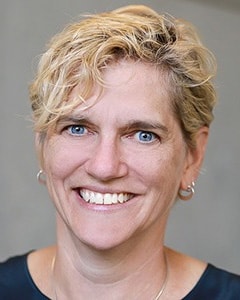
In this month’s Issue Brief we deep dive into how our members are addressing SDG 1 “No Poverty” and SDG 8 “Decent Work and Economic Growth,” with a specific eye on how members are leveraging new technologies (such as AI), digital skills development, closing the gender work gap, and creating new opportunities in this ever-changing landscape of technological change.
To understand the evolving workforce challenges, we talked with Ama Akuamoah, Director of Market Engagement of the Digital Innovation Group at Opportunity International who has direct on-the-ground involvement delivering solutions to final-mile communities. We also had a revealing conversation with Naria Santa Lucia, General Manager of Digital Inclusion at Microsoft Philanthropies who talked about the importance of upskilling communities with digital technologies, services, and products to ensure no one is left behind.
The programs and interventions GlobalWA members are implementing in communities where they work are exemplifying a new standard and are setting a hopeful course for current and future generations.
Jane Meseck
Interim Executive Director
Issue Brief
The Future of Work
By Cady Susswein
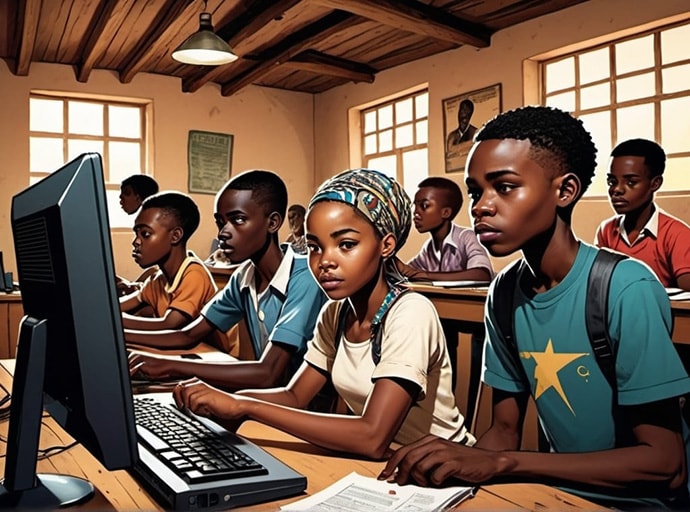
Teenagers working with computers – image generated by OpenArt AI by GlobalWA.
The very first Sustainable Development Goal (SDG) is “No Poverty.” It’s so important that SDG 8 further expands to cover “Decent Work and Economic Growth” – key factors in pulling people out of poverty. Decent work is the cornerstone of a thriving society, ensuring dignity, security, and fulfillment for individuals, while driving economic prosperity. In the rapidly evolving landscape of the future of work, digital skills are becoming increasingly crucial to stay competitive and adaptable. They unlock new opportunities all over the world and enable access to remote work and flexible employment, promoting inclusivity and work-life balance. By investing in digital skills development, GlobalWA members are fostering sustainable growth and resilience in the face of technological change.
Digital Literacy
The digital journey starts early, and making sure children get access to digital resources is an important first step. The Sehgal Foundation in India runs Project Umeed, a program to establish digital libraries with computers, internet, and educational software in underserved communities. In partnership with Trees for Life, the India Development Relief Fund, and the Guru Krupa Foundation, their programs specifically engage young women and girls, who are often disproportionately affected by the digital divide. Through Sehgal programs, women and girls master basic computer applications, learn how to conduct an internet search, and use their new skills to apply for jobs, make online payments, and apply for government support programs. Their Sakshyam program helps students fact check information, understand bias in language, and evaluate online resources to be able to make informed decisions on misleading information that can be prevalent in the digital world.

For Sukarya, innovation doesn’t always mean digital. In India, 32 million children can’t go to school, often due to lack of access to education facilities. So Sukarya developed a classroom on wheels that could travel from community to community. The buses are equipped with computers and offer digital skills classes in addition to literacy and other basic educational needs for children of multiple age groups.
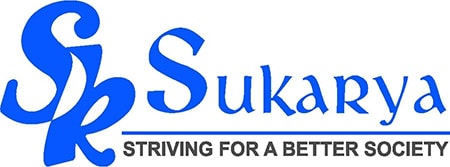
In sub-Saharan Africa, the education statistics can be equally bleak. More than half of children do not complete primary school and of those that do, two thirds haven’t mastered basic reading proficiency. With high student-to-teacher ratios and little access to study materials, mobile-phone-based education platforms can leapfrog some of these intractable problems. Global Partnerships partnered with Eneza Education to create a Digital Study Materials program in which children like Imelda in Kenya can access study guides, take SMS-based tests, and send questions to a network of teachers who provide personalized responses all on their phones. The 9 million children who use the program see a 23% average improvement in learning outcomes. Most importantly, this uptick means that many of these kids are more likely to continue their education.
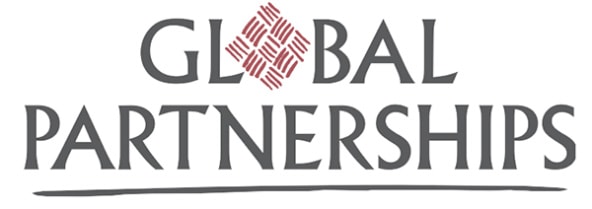
Amplio Network works to solve global poverty by addressing illiteracy challenges with their innovative Talking Book. The Talking Book is a durable, cost-effective audio device that was originally designed to enhance literacy skills for school children, but unexpectedly became an invaluable tool for disseminating health and agricultural education in remote areas. Unlike the radio or a fleeting session given by community workers, people do not need to rely on memory or taking notes and can refer to the Talking Book whenever they need.

Digital Tools for Entrepreneurship
Global Partnerships also invests in Arifu, a free mobile-based education platform that provides low-income Kenyans with best practices in financial planning, agriculture, and other topics, enabling households to pull themselves out of poverty. Organizations that want to reach a certain audience can create licensable courses. For instance, an agribusiness wanted to train farmers to increase sales. Arifu digitized the business’s in-person training, which reduced the cost of delivery from $20 to $1 per farmer. The result was increased farmer yields by 55% and $187 more income per acre. Similarly, a digital financial service provider wanted to increase usage of a new savings and borrowing product in rural areas. The courses Arifu developed helped the provider accomplish its goals, but more importantly it led to a 500% increase in savings deposits for low-income users. A win-win for both sides. Relatedly, Mifos X is another open source financial services platform that works with financial institutions to offer them affordable, adaptable, and accessible financial applications for their users.
Mercy Corps established MicroMentor – the world’s largest community for young entrepreneurs looking for mentors and volunteer professionals looking to support mentees. The platform has an 83% survival rate for mentored entrepreneurs, who create twice as many jobs as entrepreneurs without mentors. For two-thirds of users, MicroMentor was the only resource they had for early-stage mentorship. Another Mercy Corps program called Gaza Sky Geeks is a platform in the Palestinian territory to teach young people coding and support them with freelancing and establishing tech businesses. Graduates of their coding and freelancing training programs have collectively reported over $5 million in earnings one year after graduation.
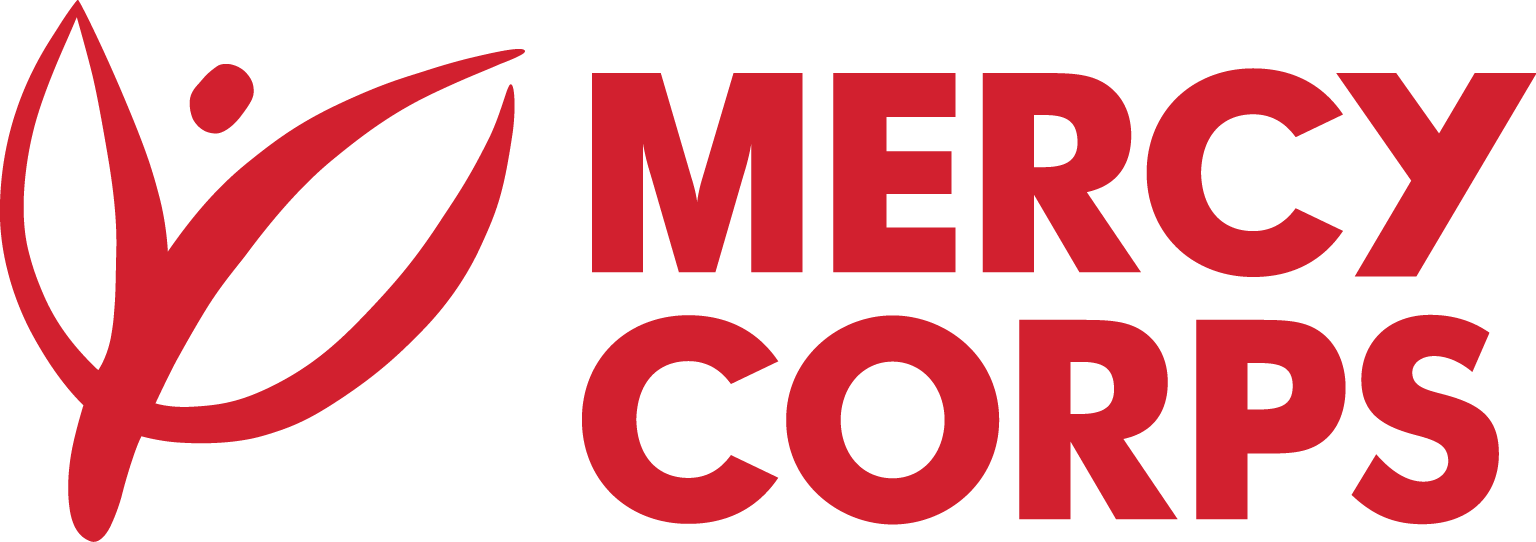
Global Communities implements the Digital Savings Group (DSG) Hub, an online learning and community platform that facilitates (and hopefully inspires) safe and inclusive online saving. The DSG Hub offers how-to resources and ways for users to connect and collaborate. A study by a similar Global Communities program showed that savings groups that use digital record keeping apps experience greater transparency, fewer conflicts, and greater financial capability that those who use analog systems. The study also found evidence that highlights the need to include gender considerations in the design of savings group apps.

Ashesi University Foundation in Ghana has a mission to educate a new generation of ethical and entrepreneurial leaders in Africa with the critical thinking skills and courage it will take to transform the continent. Derick Omari, an Ashesi graduate, initially founded a project called Tech Era to teach basic computer skills to children in Berekuso. It has grown to teach hundreds of students throughout the country, and Omari later went on to develop an adaptive technologies company, offering products especially to the disabled.

In Zanzibar, Tanzania, there is a huge pay disparity between tourism professionals locally and those in the tourism industry globally. Welcome Ideas works with Zanzibaris, especially women, to set up their own small, responsible tourism businesses to keep tourism revenue in the pockets of locals. The organization offers an online portal for education, networking, and more. Classes offer support navigating business information technology systems and other issues.

Food Security
The Hunger Project sees the value of digital skills in preventing hunger. The digital divide means more than 2 billion women don’t have mobile phones or adequate wi-fi connectivity and that means they can’t expand their knowledge about agriculture, health, finance, and the economic opportunities that would help lead them out of poverty. In partnership with the U.S. Agency for International Development (USAID), Microsoft’s Airband Initiative to close the digital divide, and BLUETOWN, a Danish company that provides low-cost, sustainable wi-fi to connect the unconnected, The Hunger Project developed a program to provide this essential connectivity and information to over 6,000 women in three areas in Eastern Ghana.
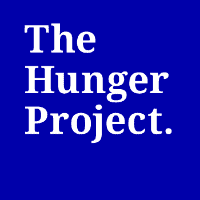
Maize and beans are Tanzania’s staple crops and are an important source of nutrition and food security in the country. However, both are significantly affected by pests and diseases and can cause smallholder farms to lose their entire crops some years. Early identification and intervention can manage the problem, but few farmers were using software to identify diseases. Grow Further is developing a disease identification app and aims to reach 400,000 farmers within five years and 5 million farmers within 20 years through open-source software.

Future of Fish believes the digital world can give small-scale fishers the tools to improve their livelihoods much the way smart phones have provided similar benefits for smallholder farmers. With a cellphone, fishers can learn about best practices, collaborate with other fishers, access new markets, and build credit histories. In an age of data sharing, digitizing fishing resources could also help governments monitor fish stock to enhance sustainability and inclusivity in coastal fishing communities.
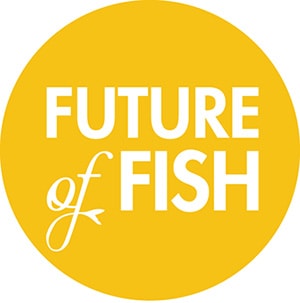
While these GlobalWA members focus on digital innovations and skills, many more focus on decent work more broadly. This includes organizations like Spreeha Foundation, which equips Bangladeshis with the skill sets necessary for the competitive job market through scholarship and apprenticeship; Awamaki, which trains Andean women artists to give them the technical skills and market access for a global audience; and Upaya Social Ventures, which runs the Dignified Jobs Accelerator and Collaborative that uses human-centered design principles to bring those living in extreme poverty into the global conversation about dignity and decent work.



Digital skills and access to modern digital tools have become increasingly paramount for today’s workforce. Vocational training, digital skills training, and job support provided by our member organizations are fostering a workforce of self-sufficient farmers, fishers, businessmen and businesswomen. The programs and interventions GlobalWA members are implementing in communities where they work are exemplifying a new standard and are setting a hopeful course for current and future generations.
The following additional GlobalWA members are providing quality training and economic development and support services through their programs in low- and middle-income countries where they work.
ACT for Congo supports innovative and integrated programs in North Kivu, DR Congo. Our partner AGIR’s goal is improving living conditions in DR Congo. AGIR’s integrated approach provides viable skills that enable the most vulnerable to support themselves and their families. It begins with assessment, mental stability, relationships in community and then vocational training, internships and small business, savings/credit associations. There is little employment, so training in fields that are in demand is important.
Since the volcanic eruption in May of 2021, AGIR_RDC has focused on internally displaced people. They’ve equipped three cohorts (476 people) with vocational skills that earned government issued certificates, while also addressing five waves of emergency displaced by violence around Goma and Beni.
Results of the third cohort in Goma and Beni:
- Literacy: 212 (9 men)
- Pastry: 10 (only offered once in Mugunga)
- Masonry: 49
- Professional Driving: 58
- Tailors: 100
- Culinary Arts: 12
- Esthetician/Barbers: 35
For more information see our websites: www.actforcongo.org and www.agirrdc.org
Pygmy Survival Alliance (PSA) of Seattle, Washington supports the existential struggle of Batwa people in Rwanda, historically known as “Pygmies”. PSA follows an innovative, evidence-based model of functional empowerment that succeeds through enhancements in women’s leadership, education, and economic development. A critical aspect of this effort is to teach business and finance skills, support entrepreneurialism and create jobs. These efforts provide the foundation for people who live on an average of 22 cents per day (ten times below the WHO poverty level) to work their way to a sustainable future.
We promote business and finance skills through savings circles, microloans, and the formation of workers cooperatives for farmers, basket-makers, and performing artists.
We support entrepreneurialism by making markets for products of Batwa businesses, such as soap, pottery, wooden utensils and baskets; and by investing capital in promising micro ventures, such as electronics repair, sewing and weaving enterprises, and instrument making.
We create jobs by hiring and training villagers to work in the early childhood development center, porridge kitchen, hair salons and water utility business that we helped initiate; and by building infrastructure to sustain economic growth, including waterworks, hygiene facilities, rural electrification, streetlights, and housing.
These efforts have led to a dramatic reduction in poverty in our participating villages, thereby reducing childhood mortality and raising the status of women.
S M Sehgal Foundation drives positive social, economic, and environmental change in rural India in alignment with UN Sustainable Development Goals (SDGs): 1 (NO POVERTY) and 8 (DECENT WORK AND ECONOMIC GROWTH). Our comprehensive programs to enhance food and water security provide resources and training to empower vulnerable populations, women and children in particular, to improve lives and achieve sustainable incomes. For over twenty-five years, our community-led development initiatives have reached more than 4.94 million people across 12 states, 64 districts, and 2,500 villages.
SDG 1-aligned programs promote improved agricultural practices and increase household incomes. Projects that empower women farmers include training as Pashu Sakhis (veterinary supports), goat framing, bee keeping, and use of oil expeller machines.
SDG 8-aligned programs facilitate skill development and entrepreneurship opportunities that foster economic growth and job creation in the agriculture sector and work with Farmer Producer Organizations and Women Farmers Groups. Digital and life skills awareness training programs connect rural communities with the global world to help bridge the gap between rural and urban education.
Strategic partnerships with donors and stakeholders create a sustainable and prosperous future for rural India, ensuring that no one is left behind in the journey toward economic and social empowerment.
Upaya Social Ventures is a nonprofit organization building an inclusive economy by providing investment and support to early-stage businesses creating thousands of dignified jobs for people living in extreme poverty.
Upaya’s approach includes a pioneering model that pools together foundation grants in a fund from which to draw investments in early-stage social enterprises. Financial returns from these investments are returned back to the original donor with a capped premium of up to 5%. This unique structure lets one donation make an impact over and over again, and opens up investment in “missing middle” companies to funders who typically cannot make smaller single investments.
Upaya’s award-winning, impact-first investments seek out and support oft-overlooked companies creating work that is safe, stable, inclusive, and rewarding — generating a transformative impact on families, communities, and economies. Since its founding in 2011, Upaya’s portfolio companies have created over 42,000 dignified jobs across India.
Pangea Grant Partners
Solidarity Eden Foundation
The Solidarity Eden Foundation is a registered refugee youth-led organization, founded in 2015 in Kampala Uganda with the vision of caring, empowering, and inspiring refugee communities for a better tomorrow. Through the process, the SEF offers Language Development, Vocational Training, Community Psychosocial, and Creative Arts Programs to refugees from DR Congo, Rwanda, Burundi, South Sudan, and Somalia.
Ufanisi Women’s Group
Ufanisi Women’s Group (UWG) serves extremely poor, vulnerable rural women and girls in Bungoma County, Western Kenya. For the past several years, the group has been working toward building a sweet potato enhancement business, first by increasing farmer’s production of sweet potato vines, then by beginning to make enhanced products like chips, cookies, and pies. This year’s grant will support the group in taking the next steps by purchasing larger capacity equipment for production and storage, opening a sales stall in the nearest market town, and exploring other marketing opportunities.
Pangea Site Visit!
Planning is underway for a Pangea Site Visit to Guatemala that will take place in conjunction with the Central America Donors Forum in Antigua, October 7-9.
The site visit dates will be October 9-15 (approximately). The purpose of the site visit will be to visit our grant partner Taa Pit in San Pedro La Laguna, Lake Atitlan and to visit potential 2025 grant partners. Those who sign on to the site visit will help with organizing the trip and have a role when we travel together. If you are interested, please contact Betsy Hale, LA POD Chair.
Organization Profile
Stronger Tomorrow: Integral Efforts by Microsoft to Build Digital Capacities and Technological Proficiency
By Aneesh Chatterjee
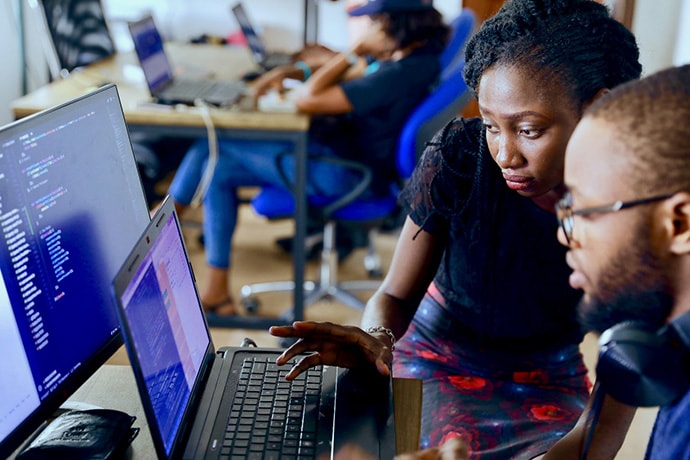
Learning to code; Nigeria. Photo: Desola Lanre-Ologun/Unsplash
In October, 2023, Microsoft partnered with M-PESA Africa in Nairobi to strengthen their efforts in digitizing small and medium-sized enterprises in various markets, and introducing businesses to digital skills training programs on the Microsoft Community Platform. Helping businesses become more comfortable with modern technologies and learning to use them may be the key to building resilience in rapidly transforming economies, and ensuring longevity and adaptability for enterprises of any scale. By partnering with local NGOs in targeted communities, Microsoft’s digital upskilling programs can be modified for a variety of local contexts, requirements, and problems – something that generative AI is becoming increasingly useful for.
Capacity-building for nonprofits across the world is a cornerstone priority for Microsoft, especially when it comes to closing the digital skills gap and allowing people and organizations the freedom, capabilities, and boosted efficiency brought on by emerging technologies. Their digital skills initiative came into full force at the peak of the COVID-19 pandemic, building the groundwork for long-term resilience in the wake of record unemployment rates across the world.
Today, Microsoft continues to engage with communities at the ground level through partnerships, provide access to powerful AI tools, and bolster the digital capacities of organizations at the front lines.
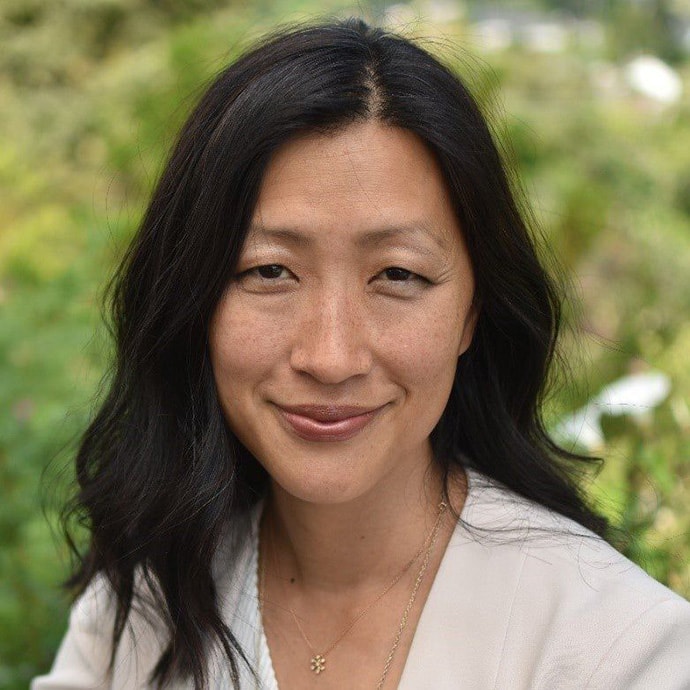
Global Washington spoke with Naria Santa Lucia, General Manager of Digital Inclusion at Microsoft Philanthropies, to learn more about their digital skilling enterprise.
Can you please introduce yourself and tell us about your role at Microsoft?
Sure, thanks! It’s great to be here. I really appreciate the invitation. I lead our Digital Inclusion work within Microsoft Philanthropies. That includes looking after our skilling work, how we engage with nonprofits and other international organizations to drive skilling at scale – especially in the digital, and now increasingly prevalent generative AI space – for people who may be left behind. We make sure they have the training and skills they need to embrace technology.
More broadly speaking, we have a three-part charter at Microsoft Philanthropies. The first is to help nonprofit organizations leverage and embrace technology so they can do their work effectively as agents of change. The second is the work that my team leads – the skilling space. Finally, we have a lot of work in employee engagement and disaster response – how we can help Microsoft employees give out their time, talent, and treasure to really make a difference.
Could you elaborate on employee engagement at Microsoft, particularly around digital scaling?
Absolutely. Employee engagement has been a core part of Microsoft’s DNA right from the beginning. We’ve set up different programs to ensure that people can give – and the company matches donations up to a certain amount. We’ve recently expanded that internationally to markets where it’s legally permissible, which has been very, very exciting. The giving of your dollar is really important to nonprofits. We really encourage every nonprofit to make sure they’re on our platform so they can be recipients of the generosity of our employees.
In addition to that, we really focus on helping people use their skills to volunteer. Two things in that area: we have a new program called Change Agents, which I think is very exciting. Essentially, it’s to help Microsoft employees who are getting involved with nonprofits. Whether it’s a board member or a volunteer, we arm all of our employees who want to be a Change Agent with information on how they can get free Microsoft technology products, skilling offers, how they can be a part of the Give Campaign – we’re almost like a concierge to a nonprofit. And then, obviously, the volunteering aspect is great. I’m a lawyer by training. So if there’s a way I want to get involved with a nonprofit to give legal aid advice, for example, I can get those hours matched with a donation to a nonprofit.
How do you define “digital inclusion” and why is this so important?
That’s a great question. Our mission at Microsoft is to empower every person and organization on the planet to achieve more. There is, of course, a business model that will drive enterprise customers to pay and access all these technologies. But to truly bring that mission to life, we need to think about extending to everyone the chance to be empowered. That’s where, I think, Philanthropies as an organization itself sits. We really try to extend Microsoft to every single community, especially those that may be at the margins or at risk of being left behind.
Digital inclusion in general can mean a lot of things – in the global context, you hear it a lot in the case of connectivity, skilling or capacity-building. In our team, we focus on the skilling aspect, but across Microsoft, we have teams that focus on broadband access and connectivity to skilling through devices. Bringing all those together are the three legs of the stool to broader digital inclusion.
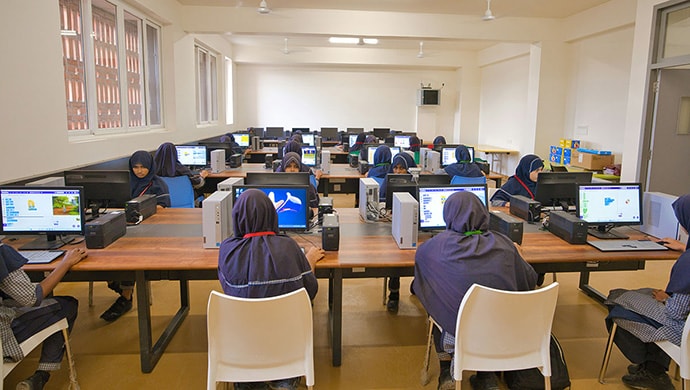
Secondary school computer lab, Chennai, India. Photo: Haseeb Modi/Unsplash
I understand that your team has grown quite a bit in the last few years.
What I like is that it’s an interesting mix. In addition to the programmatic aspects of skilling, bringing content, data insights, certifications, thought leadership and connections for our nonprofit partners, we also have our field team that executes on the ground. We have Microsoft employees that act as Area Leads to bring that work into communities. We also have a footprint within the United States called TechSpark, and they help us figure out how to go into places where you may not think Microsoft would have a huge presence, like Cheyenne, Wyoming or Green Bay, Wisconsin – but we’re really trying to stand arm-in-arm with the community and help to skill and build a tech ecosystem.
What is Microsoft’s vision for the future of work?
We have a lot going on in this space. I’d just like to step back for a moment – one of the things that my team does is to help skill nonprofit organizations. There was a period, I would say two years ago, where we would really focus on digital skilling, because every job in the future would require some digital acumen. I think that’s become very true, especially for nonprofits. The biggest deflationary action is technology – to be able to save time and be more productive. With pressures on fundraising and other aspects, we need to think about how nonprofits and other organizations can be more efficient with the resources they have.
With the advent of generative AI, we’re now thinking about a future where every job requires generative AI fluency, lots of opportunities, and potentially disruptions caused by this new AI economy. We’ve already started to focus on that, and it will definitely be a focus in the future. We’re thinking about it in a couple of different ways. The first are the users – everyday workers, frontline workers, knowledge workers at developmental organizations, particularly nonprofits. We expect significant amount of productivity gains if we can help users themselves leverage generative AI.
Secondly, we’re thinking about developers. To have this AI economy, you need to have people who can continually build and develop language models in an equitable and unbiased way, and people who can develop tools and technologies using those models. For example, if you’re going to be in a country in the global south, you need data centers, you need electricity, but you also need developers and IT professionals who can build new tools and solutions.
Finally, we’ve been thinking a lot about how to help organizations embrace and adopt technologies responsibly. I don’t think we have done a lot on that in the past, because we focused more on introducing people to technologies and the skills they need. Not only do we need to teach people these skills and teach developers to build them, but organizations need to know how to embrace this. Organizations, right now, are grappling with what workloads can be made more productive with AI, what change management practices should be made, how they can do this responsibly and have good AI policy. Large enterprises, for-profit groups, will have lots of people on hand to advise and consult on that work – but I think there’s a huge opportunity for us to help nonprofits, especially the smaller to medium-sized ones, that may not have the ability to access that knowledge or guidance. Is there a way for Microsoft to help, and also involve the pro bono community as well?
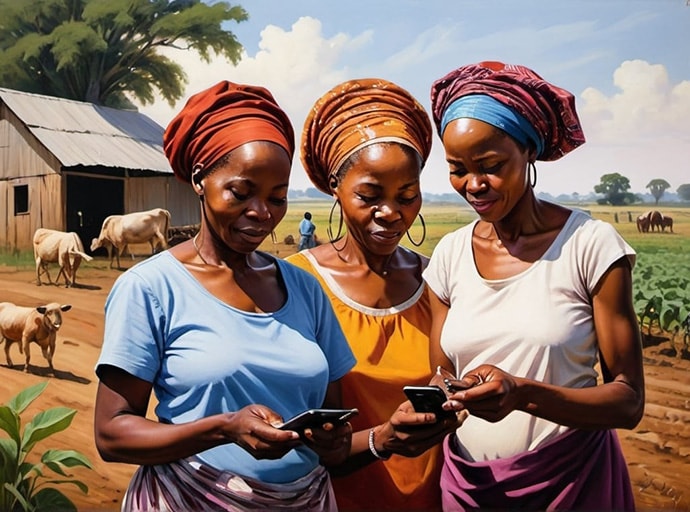
Image created with openart.ai. Prompt: “painting of middle-aged African women on a farm looking at cellphones”
There’s a quote from the head of the Geneva Graduate Institute at Davos, two years ago I think, that said “AI won’t take your jobs. Somebody using AI will take your job.” Similarly for organizations, the ones that are able to be more productive, leverage technologies and do things more efficiently are the ones that will survive.
Nonprofits have a risk of being slow adopters. Also, we really need to push philanthropists and government funders to go and help nonprofits do this. Often, we’re pushing for programmatic project-based funding, but we don’t do enough to build the technological backbone. We don’t want nonprofits to miss the mark, because they are the front line, they know what communities need, they are the trusted groups.
Do you ever encounter suspicion of AI when you’re implementing it, where people are concerned with data security or government surveillance, for example?
We definitely do hear that. I think people should always approach things with that healthy skepticism. That’s why it’s really important that people have a sense of fluency in where data is going, what questions to ask, and what information is being provided. It’s important for us to educate people correctly. All of us need to be very aware of how we use these tools. People also need to understand that AI tools will have bias in them based on the available data that it’s trained on. In the global south, we often hear that people are worried about AI tools not being available in their native language, leading to them feeling excluded. As companies like Microsoft create these technologies, we need to understand how to use it responsibly.
I know that Microsoft calls their tool Copilot, and it really is a copilot in that respect – it isn’t going to take over the world.
I had a conversation with a friend of mine, who’s a teacher. She said she could tell immediately when a student had used Copilot or GhatGPT. We should never think of these as having perfect human qualities – these are tools like any other. It is a copilot – it’s a great first draft. When I first started practicing law, nobody ever wrote an original briefing. You always went into the briefing bank and built from there. That’s how I use AI – I’d ask it to write me a memo, for example, which I would then go in and edit. It saves a lot of time, and definitely gets you over that initial hump.
You touched on this a little bit, but can you talk more about specific programs where AI is empowering international learners?
I do really think that, as we are rolling out our new focus on generative AI, we’re going to build on the success of our previous programs and digital skilling, but where I’m most excited is learning how to use AI itself to upskill at scale. We’re going to train people on AI, but also use AI to do it.
We partnered with an organization called Data.org, and as their name implies, they’re a nonprofit that helps other nonprofits build up their data, AI, and machine learning capabilities. You and I were talking earlier about an organization in India, for example, which has troves of information written by hand. Data.org would help organizations like that to capture and leverage their data for additional programmatic outputs.
With Data.org, we launched a challenge: how can nonprofits use AI to skill and scale? There was an organization in India, for example, helping women, that had helped build a learning agent – a chatbot, essentially – that helped people train. We have a ton of content, but localizing that content is expensive and challenging. That’s one area where I’m really seeing generative AI help, at super-low costs. We can take our content in English, convert it to Swahili very quickly, and also add some local context to it for learners.
Young people, especially in the global south, are going to be the majority population. It’s an amazing opportunity to not only help them use generative AI in all fields, but train future developers. People who not only know the basics of computer science, but can use GitHub Copilot to code in natural language. Very excited about those opportunities.
What are some programs that you feel best represent the digital upskilling in international settings?
There’s one in Brazil that really illustrates how we do our work. We partner with a nonprofit organization that partners with the government of Brazil. It’s called the School of Workers. We just surpassed one million people trained on that platform. What I love about it is that it crossed administrations, because often, you’ll have uncooperative political parties. Bolsonaro had launched it with us, and Lula then took on the School of Workers, expanding and growing it. That’s a great testament to the power of us coming together with trusted nonprofits who partner with governments.
Another example that’s really indicative of how powerful generative AI can be is a group in India called Seeds, an organization that leverages AI to mitigate potential disasters. We’ve partnered with them to use our satellite imaging to map out, for example, a part in Delhi where you can tell by their roofing equipment in certain dwellings how much at-risk they are for heat waves. Then, Seeds would send out community workers on the ground, based on the data that we helped generate, to change the materials on those roofs.
How does Microsoft approach communities with programming where the resources, needs and jobs vary? Higher-income communities, for example, recognize digital skills as crucial and include that in their curriculum. Lower and middle-income countries are more concerned with building schools and getting people into classrooms first, for basic education. How does Microsoft engage those communities?
We would definitely always do things in partnerships. We do have content and resources for very basic digital skills, such as turning on a computer, all the way up to developing AI and everything in-between. There’s a great example where IOM – the UN organization for migration – visited a refugee settlement camp. It’s a tough place to be, and it would be ridiculous for Microsoft to come and say “we’ll teach you digital skills” when there’s no electricity. We know we can’t be everywhere in that capacity, but what we can do is help IOM itself, lower the cost of their operations, allow them more resources, space and time to actually go do their work in the field. We’re not going to be able to solve everything, but we can certainly build the capacities of organizations who are doing that work.
Secondly, on the skilling side, there are some people that my programs and my team can never help – and that’s okay. We need to understand where we can be most useful. We partnered with World Bank, for example, and gave them access to our digital content. They picked and chose what worked for them and have now started skilling people in Ethiopia.
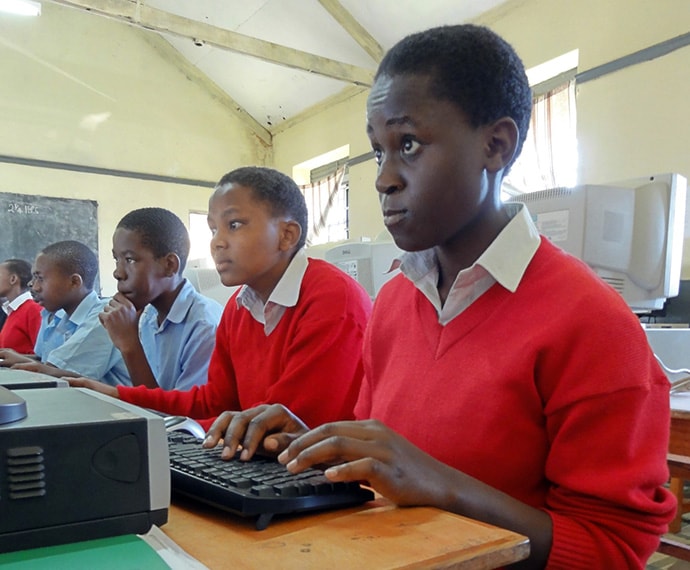
Teenagers in Ghana learning computers. Photo CC by 2.0
We have a number of direct-to-learner offerings too. We have a number of free courses on LinkedIn available, including on generative AI, that result in a career essentials certificate. If you want to come and learn about Microsoft technologies, or how to be a software developer, we do have that free content. We just joined this group that helps skill women in Afghanistan. We are never going to be able to go directly to Afghanistan, but if we put this content out there and work through nonprofits to target specific people, they can go online to get the skills they need.
With everything that’s going on in the world – policies, politics, natural disasters, climate change – is there anything that’s really worrying Microsoft regarding these digital upskilling programs?
I would say, doing it as fast as we can, with as much scale as we can. I’d say that’s what keeps me up at night. It goes back to that theme where the inevitable is going to happen – every job is going to require AI fluency – and we don’t want to see another digital divide exacerbating the haves and have-nots. We’re thinking very much about how to do this at scale, just in time, so that people have access to the knowledge and content and learn the ability to leverage the technology.
What are you most hopeful for?
I definitely feel really hopeful for our kids these days, across the global south as well. The entrepreneurial nature – I feel like their energy is really different. They don’t have the same fears of earlier generations, they’re skeptical, which is what we need with the advent of these technologies. I also feel like they’ve been through so much. COVID, and the impacts of climate change. They’re super resilient. I do feel very excited in thinking about how the global development community can rally to help young people.
*
In April, 2024, Microsoft announced a new chapter in their digital capacity-building initiatives: their commitment to the ASEAN Digital Masterplan 2025. By closing the gap in cybersecurity and AI skills, the project aims to bring technological fluency, skills training and long-term economic resilience to workforces across Vietnam, Thailand, the Philippines, Indonesia and Malaysia – learning opportunities made available for up to 2.5 million people.
Goalmaker
Ama Akuamoah, Director of Market Engagement, Digital Innovation Group, Opportunity International
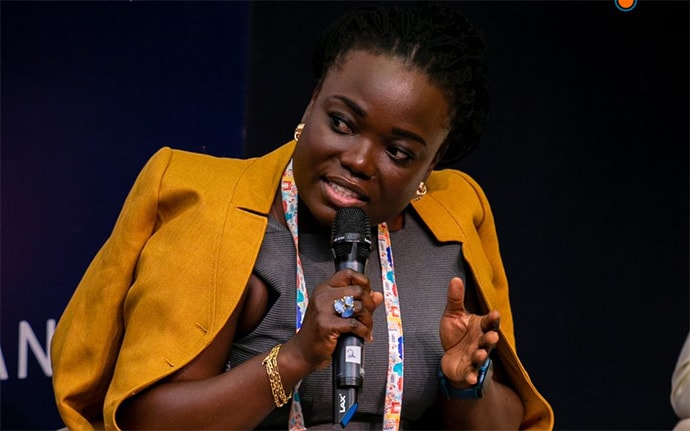
“The economic empowerment of a woman is the economic empowerment of a family and the communities that make up a nation.”
This powerful observation was shared with me by Ama Akuamoah, the Director of Market Engagement for the Digital Innovation Group at Opportunity International. I was able to connect with her while she was in Malawi, having recently visited some final-mile project locations there. We had a wonderful conversation over Zoom. She was relaxed, perhaps a bit tired being that it was the end of her (busy) day, and had a wonderful, attentive demeanor, and an infectious smile!
“At Opportunity International,” Ama said, “I have the unique role of building both internal and external partnerships to expand digital products and services to develop economic pathways out of poverty and improve the livelihoods of clients in various markets that we operate in Africa, also in India and Indonesia.”
Among its myriad of services, including work in agriculture and education finance, Opportunity International designs, develops, and deploys different digital products to support their hardest to reach clients. Using a human-centered design approach, their Digital Innovation Group has produced varying interventions to support savings groups, train banking agents, and connect farmers to critical information—including AI-based products and services.
Ama shares, “‘The future is here but it’s not evenly distributed,’ a quote from William Gibson, resounds loudly in our organization.” In Ama’s over a decade’s experience that spans 4 continents, she observed that “while we see how technologies are abounding in different parts of the world, it’s not evenly distributed in the places that we work in, especially at the last mile. We want to ensure that innovation is relevant, accessible, and affordable for people who live in the poorest communities across the world. We particularly focus on women who unfortunately are often excluded from the benefits of innovation.”
Ama continued, “These last-mile clients face significant barriers such as poor infrastructure, limited access to financial services, underdeveloped markets, and service economy and for women this is compounded by gender-related social norms that limit their agency and upward mobility in life. To be able to do this work means that I’m getting to support these women, and that’s very exciting for me.”
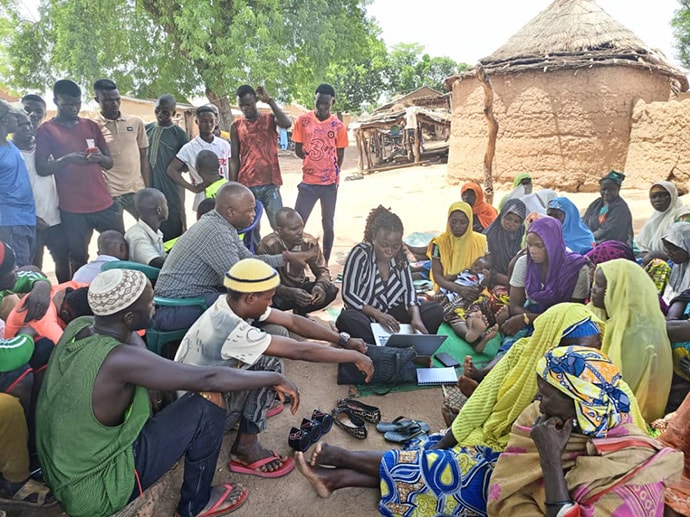
Ama working with farmers in Nigeria. Photo: Opportunity International
*****
From a young age, Ama was heavily influenced by her mother to be strong, flexible, and to help others.
“She was, and is still, a force to reckon with,” Ama says with a big smile. “Single handedly raising three children, she exemplified for me resilience, how to pivot in any situation, and how to never allow anyone or anything to stand in your way. She epitomized for me what change being your constant was like because she went through different stages in her life and her career. But in all of it, she was still stoic.”
And with all that strength, Ama said, there was a soft, generous side, too, which heavily influenced Ama’s values.
“She will feed everybody and anyone, and now that I look back as well, people whose circumstances were not very different from ours, but who had hit hard times. She always found a way to help,” reflected Ama. “So, I believe that when I started working in advocacy for children’s rights, when I was around age 12, it was probably the natural progression from what I’ve seen happen in my in my home.”
She joined a group of young people in Ghana -the Curious Minds, “a platform working to ensure the inclusive participation of young people in the decision-making processes that affect their lives.” As part of this advocacy work, Ama represented Ghana as part of the children’s delegation to the first ever United Nations General Assembly Special Session for Children (UNGASS) in 2002. This first of a kind global gathering brought world leaders, and stakeholders with vested interests in promoting the wellbeing of young people on how to create a world fit for children. For Ama, interacting with other advocates like her from other countries left an indelible link on her perspective of the power of a connected world working in unison to solve the biggest challenges that face us all. Global development to her was a career choice. It was a natural progression “from being in a home where helping other people was exemplified for me through my mother,” to working now on a larger scale with a bigger impact.
Throughout her early professional years Ama had many mentors that pushed her in the direction of international development, from UNICEF where she interned during her gap year after secondary school before heading to university, to Al Jazeera English’s London office, “these mentors opened doors, believed in me, and pushed me in the direction of opportunities for career development. I am eternally grateful to them.”
Through these earlier job opportunities and embracing what she learned by example through her mother, she kept being reminded how when you empower a woman with economic opportunity, you empower a community. This is what brought her to work with Opportunity International.
“I saw how my mother and other traders in Makola Market pulled together and supported each other economically because formal financial services were not always accessible to them. To work with Opportunity International now to enhance access to formal financial services for so many of our clients who are female and in informal economic activities—this work is very important to me.
Ama also realizes the tapestry of her education, career path, and life experiences are privileges she does not take for granted. “And I believe that to whom much is given, much is expected. I don’t take my privilege for granted – that which I’ve been given in terms of my resources, my knowledge, my experiences, I deploy to serve others, so that none of it would be wasted.”
For Ama it has paid off, time and time again. Through the programs and technology Ama helps Opportunity International deploy, such as the digitization of Savings Groups, these women have more time on their hands to expand their businesses and support their families. It is this equitable distribution of technology that solves the pain point of so many that she hopes to make possible on a wider scale.
“To see the smile on our clients’ faces is pivotal for me,” she said with her own big smile. “Working with the digital innovations group and the wider Opportunity International colleagues, I’m very privileged to be able to put my skill set into making that happen, and also to see that kind of impact.”
*****
I asked Ama, what are one or two of the digital projects she is working on that she’s excited about?
“Oh, gosh! I could talk of so many initiatives happening across the wider Opportunity International organization! The current work on digitizing savings groups is one l am closely involved in together with other colleagues from the Agriculture Finance team.”
The savings groups she visited in Malawi had been restricted in what they could do as their ledgers were paper-based and therefore, among other challenges, Financial Service providers found it difficult to create linkages to support their activities or extend tailored services and products.
“Through a partnership with DreamStart Labs using their DreamSave app, we’re digitizing the ledger of the groups and for financial service providers (FSPs) the data from Dream Insights means they are to be able to see transactions of the group and understand better group operation. Analyzing this data, FSPs for example can extend credit to the group and support the expansion of the economic activities of the members.”
This builds history and trust, without the FSPs having to travel miles on either a weekly or fortnightly basis to these groups, which also reduces the operational costs. The savings groups can access mobile money, apply for and receive (and pay off) micro-loans, and inject more money into the group–all which helps these women improve their livelihoods and their communities.
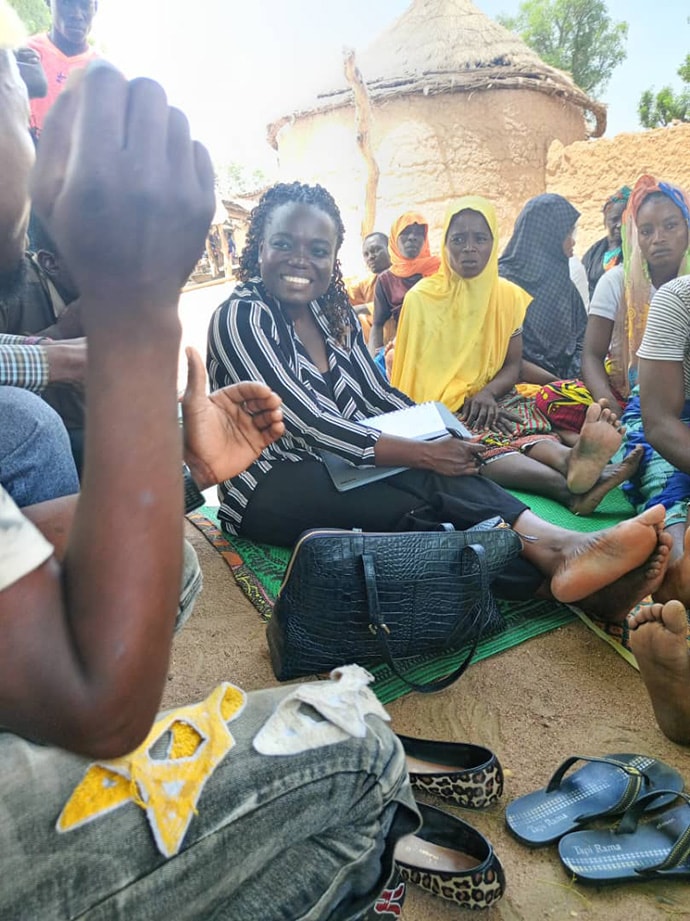
Ama working with farmers in Nigeria. Photo: Opportunity International
Another initiative Ama is excited about is their Women as Agents of Change program in India.
Due to cultural and social norms, women did not feel comfortable accessing financial services from men – and the banking correspondent agents were almost entirely male. The Indian government, to improve access to finance for women, has supported a program to create bank sakhis – women who are trained as bank agents who are in rural areas to provide bank services to the last mile clients who are also women.
The Agents of Change program recruits and trains entrepreneurial women to become banking agents who work from small shops or offices and earn commissions on transactions. Equipped with tablets or smartphones to provide banking services to these hard-to-reach communities, this network of female banking agent connects rural women to financial services—and does so with remarkable success.
Ama elaborated, “In cultural contexts where women face social cultural barriers that hinder their access to formal finance, or view their savings are too small to bother walking long distances to deposit in a bank, having a female bank agent in their locality who can deploy such services becomes a lifeline to economic empowerment. Using AI, a chatbot is in the works to make the certification process easier for the women entrepreneurs, again built on the premise of saving them time and providing learning opportunities that fits around their busy schedules.
These sakhis also become a source of inspiration for other women. Women see the success of these women bank agents and say, “‘I can also take up this role,’ and they become entrepreneurs on their own, because these women then make their own money. They have built their businesses, and other women see them and say, I can also do this if this person has done this, so it’s very, very core to the work that we do.”
Lastly, Ama talked about Ulangizi, an AI-driven chatbot available via WhatsApp, “that we give to our Farmer Support Agents who are local small holder farmers we equip to support others in their community and provide extension services in their local language. Because it’s on WhatsApp, you can send photos and it tells you what sort of disease is affecting your crop, for example. It takes a limited service in most of these rural areas in terms of extension services, and it brings it right to the doorstep of the farmer. We have successfully piloted Ulangizi and look forward to scaling and replicating the tool in other countries and languages”
You can see a presentation about Ulangizi as recorded at our Goalmakers 2023 conference and presented by Paul Essene, Sr. Director, Product & Technology Innovation, Opportunity International: click this link and fast-forward to 9:25.
*****
We shifted our conversation to how there is so much happening in the world right now that affects local (and global) economies, such as climate change, shifting politics, and conflict, and I asked her how she felt about this.
“I believe that with every challenge comes on opportunity,” she said, “and I thank my mother for that [chuckle].”
And its people who give her the most hope: “Especially young people, and their passion to be the change they want to see.” In Africa she observes how young people are forging their paths for the future of the continent they want. “They are moving the needle to the best of their ability, utilizing diverse technology to impact their communities – one step at a time.”
Member Blogs
Yemen Relief and Reconstruction Foundation: Tackling Poverty and Unemployment in Yemen
S M Sehgal Foundation: Growth Out of Poverty; S M Sehgal Foundation’s Agriculture Route
Member Events
July 6, 2024
Schools for Salone Annual Benefit
Career Center
Chief Development Officer Forest Stewardship Council Investments & Partnerships (FSC I&P)
Sustainable Finance Director Forest Stewardship Council Investments & Partnerships (FSC I&P)
Senior Manager, Compliance Panorama Global
Director of Development World Affairs Council
Director of Strategic Partnerships Ashesi University Foundation
Development Assistant VillageReach
Executive Director A Child’s Notebook
Director of Public Sector Engagement The Max Foundation
Senior Accountant: Grants and International Accounts Global Impact
Check out the GlobalWA Job Board for the latest openings. Back to Top